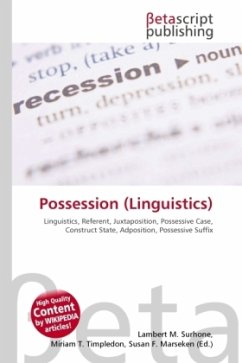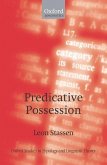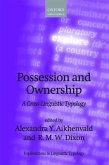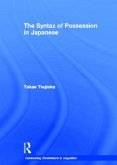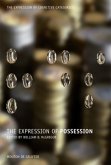The privileged treatment of parts of the body has been described in the literature as inalienable possession' and previous treatments of the phenomenon in Swahili have concentrated on transitive constructions in which the possessor and property are respectively direct and oblique objects (She grasped him [by the] shoulder). The more common construction in which the property features as subject (Eyes were swollen [for] her) has been largely overlooked. The book takes a corpus of over 900 citations from four Swahili novels and explores the different forms of construction involving possessor and property (intimate possession), and the factors that determine their choice. The constructions are found to extend to clothing on the body, words and emotions. Factors determining choice of construction are subtle and individual, but involuntariness of action appears to favour affective constructions, while possessive constructions are used more when the agent is detached. Other choices may be determined by discourse considerations such as topic switching and continuity. This study will be useful to all who are interested in the syntax of inalienable possession.
Bitte wählen Sie Ihr Anliegen aus.
Rechnungen
Retourenschein anfordern
Bestellstatus
Storno

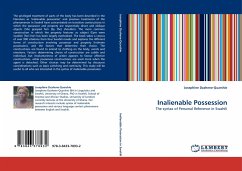
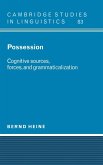
![A Calendar of Two Letter-books and One Commission-book in the Possession of the Government of Nova Scotia, 1713-1741 [microform] A Calendar of Two Letter-books and One Commission-book in the Possession of the Government of Nova Scotia, 1713-1741 [microform]](https://bilder.buecher.de/produkte/65/65537/65537680m.jpg)
